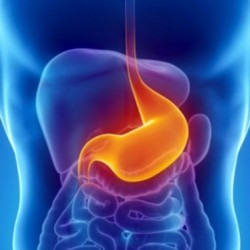By Helen Figueira
July 19, 2013
Time to read: 3 minutes
 Acid-reflux drugs pose heart attack risk
Acid-reflux drugs pose heart attack risk
Heartburn is a common complaint caused by the seepage of stomach acids into the oesophagus. Malfunction of the sphincter separating these two sections of gut can generate the acid-reflux that leads to heartburn. Millions of people regularly purchase proton pump inhibitor (PPI) drugs over the counter to reduce chronic acid-reflux, but new collaborative CSC research reveals previously unknown cardiovascular side effects of these drugs that might outweigh the therapeutic benefit of long term use of PPI’s.
In fact, the study conducted by James Leiper (Nitric Oxide Signalling Group) and researchers from Texas Methodist Hospital Research Institute and Stanford University, warns that PPIs may increase cardiovascular risk. Published in Circulation, the authors’ findings call for a large-scale clinical investigation into PPIs. As Leiper reveals, “we’ve explained how these drugs might put patients with heart problems at risk.”
While their occasional use for intermittent acid-reflux isn’t thought to pose any risk, the drugs are used over longer terms by patients with chronic acid-reflux or GORD (Gastro-Oesophageal Reflux Disease), a condition that can lead to scarring of the oesophagus and an increased risk of cancer. Biologically, PPIs are ingested in an inert form and become activated by cells in the stomach. Mechanistically they block acid secretion by binding to the gastric proton pump. “But that’s certainly not all they do,” confirms Leiper.
“Patients with severe heart problems that take PPIs are likely the highest risk group,” notes Leiper. “We found through studies on mice that these drugs increase the level of plasma asymmetric dimethylarginine (ADMA). ADMA is a naturally occurring component of blood plasma, and a byproduct of protein turnover. “But high levels of ADMA accelerate cardiovascular disease,” says Leiper. “When ADMA is high, blood vessels constrict causing a rise in blood pressure and this contributes to the development of cardiovascular disease”. The team ascertained that PPIs directly block the action of an enzyme that breaks down ADMA. “The consequence is that the blood vessels constrict.”
John Cooke, the study’s principal author considers the implications of the research for patients. “Our work is consistent with previous reports that PPIs may increase the risk of a second heart attack in people that have been hospitalized with an acute coronary syndrome. Patients taking PPIs may wish to speak to their doctors about switching to another drug to protect their stomachs, if they are at risk for a heart attack.”
The team chanced upon the finding while carrying out a high throughput screen of 130,000 small molecules, which could bind the enzyme that breaks down ADMA, known as DDAH (dimethylarginine dimethylaminohydrolase). The screen identified around 200 small molecules that inhibited the enzyme by more than 30%. Unexpectedly they found among these four members of the PPI class, which prompted them to investigate further. Given the findings of the study, the team is calling for large-scale investigation into the effects of PPI on members of the general population.
BM
References: An Unexpected Effect of Proton Pump Inhibitors: Elevation of the Cardiovascular Risk Factor ADMA. Yohannes T. Ghebremariam; Paea LePendu; Jerry C. Lee; Daniel A. Erlanson;Anna Slaviero;Nigam H. Shah;James Leiper; John P. Cooke.Circulation, 2013, doi:10.1161/CIRCULATIONAHA.113.003602
This paper has also been featured in The Wall Street Journal & Forbes